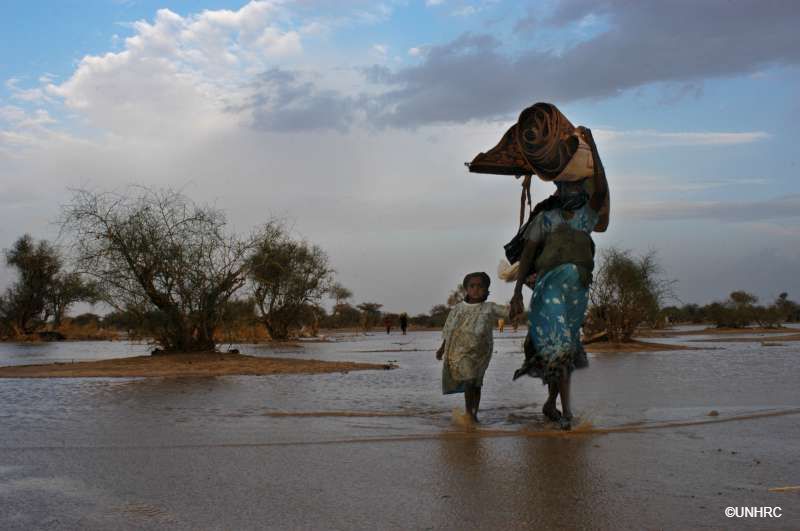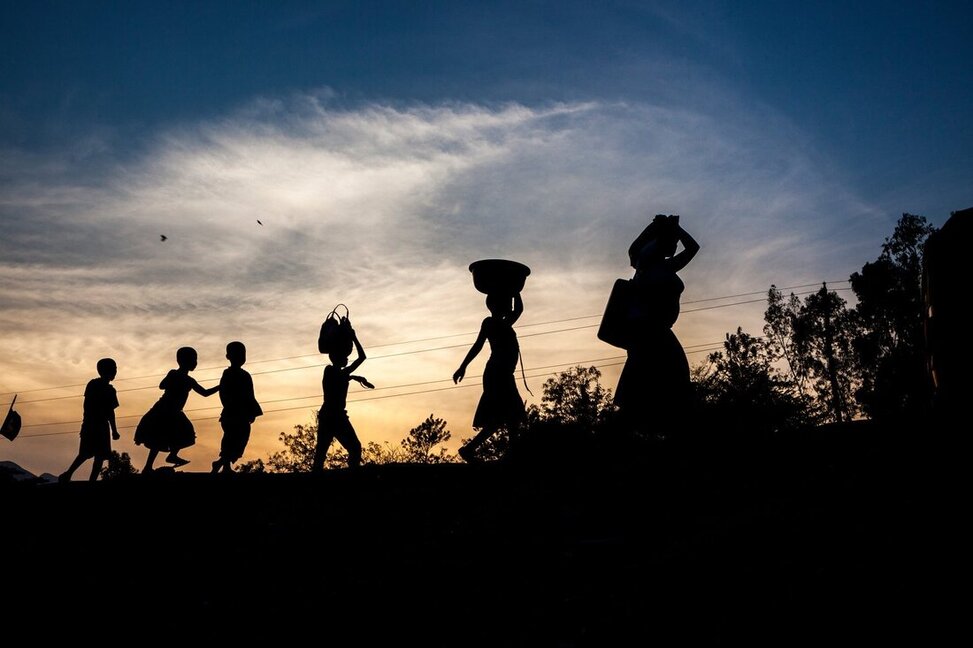|
 Since 2008, the Human Rights Council has addressed the relationship between climate change and human rights (A/HRC/10/61), in particular those impact affecting population who are already in a vulnerable situation (A/HRC/ 7/23 and A/HRC/10/4). In its 50th regular session of the Human Rights Council, celebrated from the 13 June to 8 July 2022, the Council has addressed climate change as a phenomenon that increases violations of the rights of women and girls. In particular, it has addressed climate migration as a situation that exposes women and girls to even greater risk of violence. Also, as a result of this Council session, the Special Rapporteur for the Promotion and Protection of Human Rights in the Context of Climate Change presented his first report to the Council (A/HRC/50/39) in accordance with Council Resolution 48/14. The Special Rapporteur took up his mandate on 1 May 2022 and in this first report, climate displacement is presented as one of the priorities of his mandate. In concrete, the Special Rapporteur mentions that the priority will be to address "the human rights implications of climate change displacement including legal protection of people displaced across international borders". This work is expected to be submitted by the fifty-third session of Human Rights Council in June 2023. This is a welcome announcement in response to the current regulatory vacuum that leaves so many people around the world who face the effects of climate change, in particular women and girls, among other vulnerable groups, unprotected. In fact, in this report, the Special Rapporteur mentions that 84 million people are currently forcibly displaced worldwide, lesbian, gay, bisexual, trans and gender diverse persons are particularly vulnerable and marginalized. In these cases, the climate change impacts add another layer of fragility. These people are not only fleeing from climate change, but from the climatic conditions that determines or are determined by persecution and socioeconomic exclusion, in territories where there is a worrying weakening of human rights, based mainly on discrimination based on sexual orientation and gender identity. Other priorities of the mandate are, namely: - The promotion and protection of human rights in the context of mitigation, adaptation, and financial actions to address climate change, with particular emphasis on loss and damage; - Exploring approaches to enhance climate change legislation, supporting climate change litigation and advancing the principal of intergenerational justice; - Corporate accountability with respect to human rights and climate change; - The protection of human rights through just transition for workers in industries that contribute to climate change; and - Exploring the impacts of new technologies associated with climate change mitigation on human rights. Actually, all these priorities, taken together, are interlinked, and most especially with climate displacement. In its mandate, the Special Rapporteur will work in all of these areas in collaboration with other actors to address the complexities involved among climate change and human rights. Therefore other UN special procedures, States, civil society organisations, business enterprises and inter-government organisations will collaborate in his work. In this sense, it would be important to take into account the voice of the people affected by the damages and losses caused by climate change and who have been forced to migrate, particularly those who have done so across international borders.
0 Comments
Leave a Reply. |
Susana BorràsMarie Skłodowska-Curie Fellow (H2020-MSCA-IF-2020)nº101031252 Archives
March 2023
|
Proudly powered by Weebly




 RSS Feed
RSS Feed